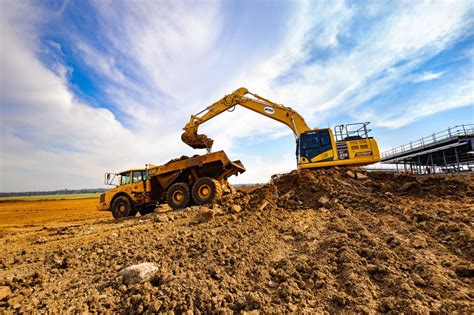excavation compaction Learn about soil compaction, its types, methods, and effects on soil types and construction projects. Find out how to identify and classify soil, and how to achieve optimal density and moisture content. Professional john deere hydraulic quick couplers factory and supplier, A solid OEM package, committed to helping customers gain more versatility and productivity by providing high-quality accessories.
0 · What is Earthwork in Construction?
1 · What Are Earthworks In Construction
2 · How to Compact Soil After Excavation: Your Step
3 · Excavation and Compaction; how they A
Excavated at the Tughlaq Palace of Firuz Shah Kotla, Delhi. Archaeological Survey of India, New Delhi 63 3.13 Fragments of porcelain dishes with underglaze cobalt blue design, left with moulded monochrome cartouche, and right with cloud-collar lappet design. Yuan period, second-quarter of the fourteenth century excavated from Jingdezhen, Jiangxi
What is Earthwork in Construction?
268b cat skid steer
Compaction after excavation is the process of pressing down loosened soil to .Compaction must take place during a fill operation to increase the density of the soil material being placed. Another common breakdown in excavation work is bulk excavation and trench excavation. Swell and shrinkage are two important, and often misunderstood, terms. Compaction after excavation is the process of pressing down loosened soil to eliminate air pockets and increase soil density. This ensures that the ground can support structures and prevents future issues like settling, erosion, or water pooling.Learn about soil compaction, its types, methods, and effects on soil types and construction projects. Find out how to identify and classify soil, and how to achieve optimal density and moisture content.
Learn about the earthwork operations and requirements for roadway construction projects in California. Find out how to prepare, inspect, and pay for excavation, backfill, embankment, compaction, and other earthwork activities.
Learn the sequence, procedure and quality checks for excavation and backfilling of soil in construction. Find out the materials, tools, drawings and guidelines for earthwork in foundation and trench construction. In this article we’ll cover how to calculate cubic yards of excavation and backfill, soil types, excavation equipment, soil testing, compaction, swell factor, the difference between excavating and trenching, and when shoring or trench supports are required. Learn how to choose the right compaction equipment for different soil types and job sizes. Find out how to improve safety and efficiency with remote control, low emissions and low-vibration. Soil compaction is a vital step in building construction, providing a stable foundation for structures. By following proper preparation, using appropriate compaction methods and equipment, and conducting regular monitoring .
Soil compaction is an essential step for increasing soil density, eliminating air pockets and maximizing ground load-bearing capacity. The compaction process must be tailored to the particular characteristics of each soil type – such as dirt, clay, sand or gravel.
Learn how to plan, execute and control excavation work on construction projects. Find out about erosion and sedimentation control, clearing and grubbing, site and building demolition, earthwork excavation and compaction, rock excavation, water effects and more.Compaction must take place during a fill operation to increase the density of the soil material being placed. Another common breakdown in excavation work is bulk excavation and trench excavation. Swell and shrinkage are two important, and often misunderstood, terms. Compaction after excavation is the process of pressing down loosened soil to eliminate air pockets and increase soil density. This ensures that the ground can support structures and prevents future issues like settling, erosion, or water pooling.
What Are Earthworks In Construction
Learn about soil compaction, its types, methods, and effects on soil types and construction projects. Find out how to identify and classify soil, and how to achieve optimal density and moisture content.Learn about the earthwork operations and requirements for roadway construction projects in California. Find out how to prepare, inspect, and pay for excavation, backfill, embankment, compaction, and other earthwork activities.Learn the sequence, procedure and quality checks for excavation and backfilling of soil in construction. Find out the materials, tools, drawings and guidelines for earthwork in foundation and trench construction. In this article we’ll cover how to calculate cubic yards of excavation and backfill, soil types, excavation equipment, soil testing, compaction, swell factor, the difference between excavating and trenching, and when shoring or trench supports are required.
Learn how to choose the right compaction equipment for different soil types and job sizes. Find out how to improve safety and efficiency with remote control, low emissions and low-vibration.
Soil compaction is a vital step in building construction, providing a stable foundation for structures. By following proper preparation, using appropriate compaction methods and equipment, and conducting regular monitoring .Soil compaction is an essential step for increasing soil density, eliminating air pockets and maximizing ground load-bearing capacity. The compaction process must be tailored to the particular characteristics of each soil type – such as dirt, clay, sand or gravel.


Learn how Chinese mini excavators have emerged as market leaders in the construction industry, offering versatile and powerful solutions for confined spaces. Compare the key performance factors, brands, and features of the best Chinese mini excavators and find out how to buy them.
excavation compaction|Excavation and Compaction; how they A